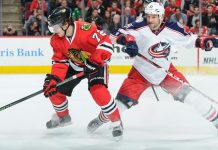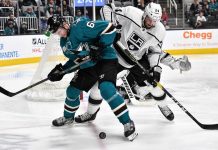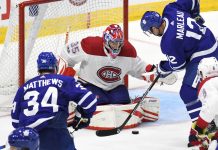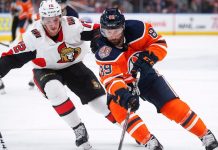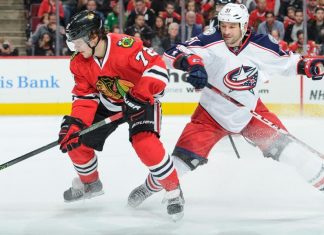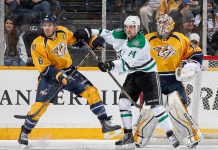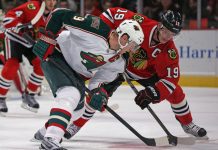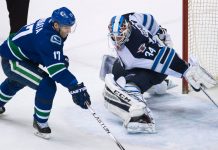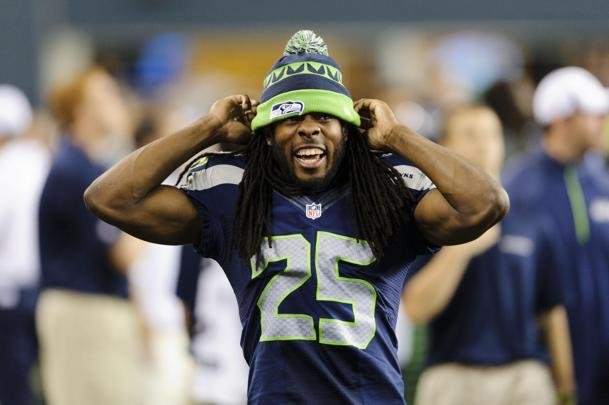DENVER (AP) – Jarome Iginla draws the blackout curtains and keeps his room at a cool temperature. He silences his cellphone and sometimes reads a relaxing book to drift off.
Although he’s an 18-year veteran, the Colorado Avalanche forward only recently happened upon this simple eye opener: Quality sleep really does matter. Especially to athletes.
The closer Iginla comes to nine hours of slumber on any given night, the better his production seems to be on the ice. That is why Iginla is not a big fan of early morning practices before games, even though those skates are as much a part of hockey tradition as playoff beards and the handshake line.
There is evidence that sleep restriction curtails adequate rest and recovery for athletes, which can impact performance. Some NBA teams have even dabbled with eliminating the traditional shootaround.
Cheri Mah, a researcher at the Stanford Sleep Disorders Clinic and Research Laboratory, tracked the sleep habits of the men’s basketball team at Stanford for a study released in 2011. By extending their sleep, the Cardinal players increased their 3-point and free throw shooting by 9 percent.
Iginla sees how the evidence can come into play on the ice, too.
”When you’re tired, it doesn’t seem like the game comes as quick,” said Iginla, who began working with sleep coaches while with the Calgary Flames a few years ago. ”You want to keep things fresh, kind of like a kid, where you can’t wait to get on the ice, can’t wait to go out there and expend that energy. The more you capture that the better.”
Nashville Predators coach Peter Laviolette actually scrubbed the morning skatearound when he was with Carolina in 2008-09. But he was fired that December and didn’t get to see the experiment through. The Hurricanes went to the Eastern Conference final after he was let go, and Laviolette is convinced the lack of a skatearound early in the season played a role.
”I think it’s because they had a lot of energy left,” Laviolette said, smiling. ”I think right now (skatearounds) are more habit than anything else. I don’t necessarily think it’s good for you.”
Still, players are creatures of habits. Maybe decades ago, skating or shooting around before games was a necessary ploy – a way for players to loosen up after a late night. Nowadays, players are more conditioned.
”I’m all for that, getting rid of those,” Anaheim forward Ryan Getzlaf said. ”It’s just kind of been instilled in some guys that they need to go on the ice.”
Dr. Charles Czeisler is known around NBA circles as the ”sleep doctor.” As the chief of the sleep and circadian disorders division at Brigham and Women’s Hospital in Boston, Czeisler has worked with several professional teams and believes more emphasis should be placed on monitoring the body’s internal clock.
A few seasons ago, Czeisler consulted with the Portland Trail Blazers to curb their trend of struggling on East Coast trips. His biggest advice? Keep everyone’s schedule on Oregon time and not, say, New York time. That three-hour difference is huge to the body.
”So the coach told them, `OK, your curfew is 2 a.m.,”’ said Czeisler, who’s worked with the Boston Celtics and Red Sox. ”The players were all very excited about that. Trying to adjust is just going to degrade your performance.”
Czeisler would like to see sleep taken just as seriously as strength programs or nutrition.
”Would you starve yourself before a game and say, `Ok, I’m not going to eat for 24 hours?’ That would be crazy,” Czeisler said. ”There’s no reason to sleep-starve yourself before a game.”
In Mah’s opinion, elite athletes need between 8-10 hours of sleep.
”So often sleep is the first thing to go when there’s a busy schedule and a lot on the plate,” said Mah, who recently offered sleep guidance to the Western Conference-leading Golden State Warriors. ”Making it a priority is essential for players and coaches.”
NBA teams such as the Minnesota Timberwolves and Denver Nuggets have experimented with cutting down on the traditional shootaround approach. Instead of having their players show up at the gym early in the morning, go home around lunch and then return that night for the game, they’re having them arrive closer to game time.
Recently, though, and by a 6-5 player vote, the struggling Nuggets decided to go back to the early morning shootaround just before coach Brian Shaw was fired.
Not everyone is a big fan of getting up early.
”I notice when we had no shootaround, everyone is more upbeat when they got to the gym,” Denver guard Ty Lawson said. ”It sticks better and it’s fresher (later in the day).”
Lawson prefers to break his sleep into chunks – five hours at night and then a three-hour nap during the day.
”When I get back from shootarournd now, that’s all I do is nap,” Lawson said. ”If I don’t get that nap, I’m done.”
Iginla certainly wouldn’t mind being done with morning skates. But it might take a Stanley Cup champion to usher in that sort of change.
”That’s what it will probably take to get it to catch on big time,” Iginla acknowledged. ”I’d rather get a little more sleep.”
—
AP Hockey Writer John Wawrow in Buffalo, New York, contributed.
25% Bonus via Western Union


